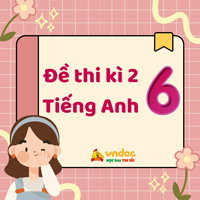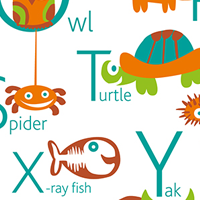Trắc nghiệm Writing tiếng Anh lớp 12 Unit 5 Cultural Identity
Tài liệu luyện kỹ năng viết (Writing) tiếng Anh Unit 5 Cultural Identity lớp 12 sách mới có đáp án dưới đây tổng hợp nhiều dạng bài tập trắc nghiệm tiếng Anh lớp 12 chương trình mới khác nhau giúp các em học sinh lớp 12 củng cố kỹ năng làm bài hiệu quả cũng như tích lũy thêm nhiều cấu trúc câu tiếng Anh thông dụng xuất hiện trong bài học hiệu quả.
Trắc nghiệm tiếng Anh 12 Unit 5 Cultural Identity có đáp án
Nằm trong bộ đề Trắc nghiệm tiếng Anh 12 theo Unit năm 2021 - 2022, đề kiểm tra tiếng Anh Unit 5 Cultural Identity Writing skill có đáp án do VnDoc.com sưu tầm và đăng tải dưới đây gồm nhiều cấu trúc ngữ pháp tiếng Anh quan trọng xuất hiện trong bài học giúp các em học sinh lớp 12 ôn tập kiến thức hiệu quả.
Mark the letter A, B, C or D to indicate the sentence that best combines each pair of sentences in the following questions.
Question 1: Harry no longer smokes a lot.
A. Harry now smokes a lot.
B. Harry used to smoke a lot.
C. Harry didn’t use to smoke a lot.
D. Harry rarely smoked a lot.
Question 2: “I’ll call you as soon as I arrive at the airport,” he said to me.
A. He objected to calling me as soon as he arrived at the airport.
B. He promised to call me as soon as he arrived at the airport.
C. He denied calling me as soon as he arrived at the airport.
D. He reminded me to call him as soon as he arrived at the airport.
Question 3: People think that traffic congestion in the downtown area is due to the increasing number of private cars.
A. Traffic congestion in the downtown area is blamed for the increasing number of private cars.
B. The increasing number of private cars is thought to be responsible for traffic congestion in the downtown area.
C. The increasing number of private cars is attributed to traffic congestion in the downtown area.
D. Traffic congestion in the downtown area is thought to result in the increasing number of private cars.
Question 4: The young girl has great experience of nursing. She has worked as a hospital volunteer for years.
A. Before she worked as a hospital volunteer for years, the young girl has great experience of nursing.
B. Much as she has worked as a hospital volunteer for years, the young girl has great experience of nursing.
C. Having worked as a hospital volunteer for years, the young girl has great experience of nursing.
D. With great experience of nursing, the young girl has worked as a hospital volunteer for years.
Question 5: Peter told us about his leaving the school. He did it on his arrival at the meeting.
A. Only after his leaving the school did Peter inform us of his arrival at the meeting.
B. Not until Peter told us that he would leave the school did he arrive at the meeting.
C. Hardly had Peter informed us about his leaving the school when he arrived at the meeting.
D. No sooner had Peter arrived at the meeting than he told us about his leaving the school.
Question 6: Preserving cultural identities in international world is a matter of great dispute.
A. It is a great dispute as cultural identities should be preserved in international.
B. No matter how great dispute is, cultural identities should be preserved in international.
C. That the dispute of preserving cultural identities in international world is a great matter.
D. The fact that cultural identities should be preserved in international world is a matter of great dispute.
Question 7: Sacred texts and ceremonies can seem confusing with no one there to guide.
Young people find an expert willing to explain their significance.
A. Although sacred texts and ceremonies can seem confusing with no one there to guide, young people are forced to find an expert willing to explain their significance.
B. Because sacred texts and ceremonies can seem confusing with no one there to guide, so young people are willing to find an expert to explain their significance.
C. For sacred texts and ceremonies can seem confusing with no one there to guide, young people might find an expert willing to explain their significance.
D. Since sacred texts and ceremonies can seem confusing with no one there to guide, young people are supposed to find an expert willing to explain their significance.
Question 8: Culture, language, facilities or economy level of the family are different. Vocal guidelines and acting in daily activities are the ways of the life experience knowledge transfer.
A. Vocal guidelines and acting in daily activities are the ways of the life experience knowledge transfer despite of different culture, language, facilities or economy level of the family.
B. Vocal guidelines and acting in daily activities are the ways of the life experience powledge transfer regardless of different culture, language, facilities or economy level of the family.
C. Vocal guidelines and acting in daily activities are the ways of the life experience knowledge transfer due to different culture, language, facilities or economy level of the family.
D. Vocal guidelines and acting in daily activities are the ways of the life experience knowledge transfer although different culture, language, facilities or economy level of the family.
Question 9: We can't deny the potential influences of global communications on our cultural identity, as it will become even more powerful.
A. It can be undeniable that global communications will become even more powerful in potentially influencing our cultural identity.
B. It cannot deny that global communications will become even more powerful in potentially influencing our cultural identity.
C. It cannot be denied that global communications will become even more powerful in potentially influencing our cultural identity.
D. It hardly deny that global communications will become even more powerful in potentially influencing our cultural identity.
Question 10: We accept that changes are unavoidable. We will not allow everything to be wiped out, destroyed or forgotten.
A. Accepting that changes are unavoidable does not mean that we will allow everything to be wiped out, destroyed or forgotten.
B. Despite accepting that changes are unavoidable, but we will not allow everything to be wiped out, destroyed or forgotten.
C. Rather than accepting that changes are unavoidable we will allow everything to be wiped out, destroyed or forgotten.
D. We accept that changes are unavoidable, as we will not allow everything to be wiped out, destroyed or forgotten.
Question 11: People have given up their heritage, traditional beliefs and other aspects of their native culture. They begin to lose their sense of self.
A. If people have not given up their heritage, traditional beliefs and other aspects of their native culture, they will not lose their sense of self.
B. Giving up their heritage, traditional beliefs and other aspects of their native culture means that people totally lose their sense of self.
C. Once people have given up their heritage, traditional beliefs and other aspects of their native culture, they are about to lose their sense of self.
D. Whenever people have given up their heritage, traditional beliefs and other aspects of their native culture, they are supposed to lose their sense of self.
Question 12: Thousands of languages are at risk of extinction. You know one of them, then teach it to others.
A. As long as you know one of thousands of languages that are at risk of extinction, then teach it to others.
B. If you know one of thousands of languages that are at risk of extinction, teach it to others.
C. For you know one of thousands of languages that are at risk of extinction, teach it to others.
D. Whenever you know one of thousands of languages that are at risk of extinction, then teach it to others.
Question 13: The girl is talking to a man with a ponytail. She is my friend.
A. The girl who is talking to a man with a ponytail is my friend.
B. The girl, whom a man with a ponytail is talking to, is my friend.
C. My friend is the girl, who is talking to a man with a ponytail.
D. The girl, who is talking to a man with a ponytail, is my friend.
Question 14: She doesn’t want to go to their party. We don't want to go either.
A. Neither she nor we don’t want to go to their party.
B. Neither we nor she wants to go to their party.
C. Either we or she doesn't want to go to their party.
D. Neither we nor she want to go to their party.
Question 15: Workers are not allowed to use the office phone for personal calls.
A. They don't let workers use the office phone.
B. Workers are not permitted to use the office phone for personal purpose.
C. The office phone is supposed to be used by workers only.
D. They don't allow workers to make phone calls.
Use double comparative to complete these following sentences.
1. They are big, they fall fast.
The bigger ___________________________
2. It is hot, I feel miserable.
The hotter ___________________________
3. I look into your eyes much, I love you much.
The more ___________________________
4. He got old, he became bad-tempered.
The older ___________________________
5. He worked hard. He felt very bad.
The harder ___________________________
Đáp án:
Mark the letter A, B, C or D to indicate the sentence that best combines each pair of sentences in the following questions.
| 1. B | 2. B | 3. B | 4. C | 5. D | 6. D | 7. D | 8. B |
| 9. C | 10. A | 11. C | 12. B | 13. A | 14. B | 15. B |
Use double comparative to complete these following sentences.
1. They are big, they fall fast.
The bigger they are, the faster they fall.
2. It is hot, I feel miserable.
The hotter it is, the more miserable I feel.
3. I look into your eyes much, I love you much.
The more I look into your eyes, the more I love you.
4. He got old, he became bad-tempered.
The older he got, the more bad-tempered he became.
5. He worked hard. He felt very bad.
The harder he worked, the worse he felt.
Trên đây là Bài tập tiếng Anh lớp 12 Unit 5 Cultural Identity Writing kèm đáp án. Mời bạn đọc tham khảo thêm nhiều tài liệu ôn tập Tiếng Anh 12 khác như: Để học tốt Tiếng Anh lớp 12, Bài tập Tiếng Anh lớp 12 theo từng Unit trực tuyến, Đề thi học kì 1 lớp 12, Đề thi học kì 2 lớp 12,... được cập nhật liên tục trên VnDoc.com.


















